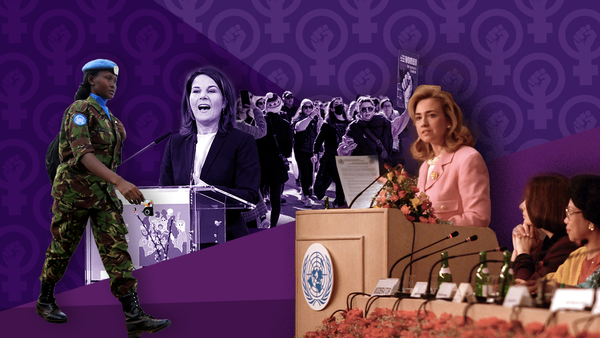Alles liebe zum Frauentag! To mark International Women's Day we delve into feminist foreign policy. Which countries have adopted the gender-focused framework that shapes how they interact with other states, and how does the policy play out in practice?
Germany made headlines this week when Foreign Minister Annalena Baerbock unveiled a new feminist foreign policy framework, outlining Berlin's efforts to boost female participation in international affairs. It directs an additional 12 billion euros in development funds to further global gender equality and says that Berlin will work to ensure that European foreign policy focuses more on the needs of women worldwide.
But what is a feminist foreign policy, and what do proponents and critics of the framework have to say about it?
First, some background. In 1995, then-first lady Hillary Clinton declared in Beijing that “women’s rights are human rights,” publicly advocating that gender equality be a core principle in international politics.
Since then, a growing number of political influencers have pushed for a radical overhaul of how states interact with each other, arguing that the pursuit of gender equality should be at the heart of all international politics.
While there is no uniform approach to its implementation – countries have interpreted the framework differently – there are areas of overlap, including the idea that increasing the number of women working in foreign policy reduces conflict and enhances peaceful outcomes. A look at the impact of having women negotiators, mediators, and witnesses involved in 182 peace agreements from 1989-2011, for example, shows that those deals involving females were 35% more likely to survive at least 15 years, according to a report by the International Peace Institute.
There’s broad agreement that gender equality at home, including increased female participation in the workforce, at the negotiating table, and in policy-making, boosts security at home andabroad. As a result, there's been an uptick in female participation in legislatures in many countries, while some institutions have introducedgender quotas in politics. The European Union, for instance, started calling for a minimum of 50% women in all its decision-making positions back in 2020 – and a whopping 85% of women in decisions about development aid.
But how do these policies play out in practice? Read more here and tell us what you think.

